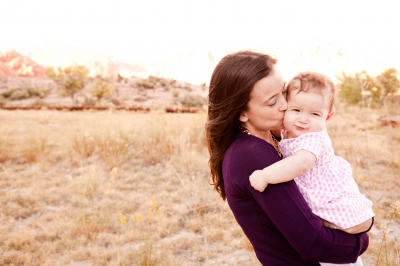Rush #4: The Race to Potty Train
Potty training is currently the hot topic at the playground. The recipe for a successful potty training experience is swapped more often than the recipe for the perfect casserole. I have not yet hopped on the train to potty town. My daughter “gets” that we go potty. She lets me know when she needs a diaper change. These are a few of the signs you look for when beginning to potty train.
However, her little body has not yet mastered bladder control and she more often lets me know after she has filled a diaper, not before. She is not ready. I have many friends whose children are at the same stage as my daughter, but their daycare provider/mother-in-law/friends are pushing using the potty now. Many daycares even require your child be potty trained by age three, but I encourage you to not rush if your child is not ready.
If you are wondering whether your child is ready to potty train, there are not only physical signs to look for, but behavioral and cognitive signs, as well. Physical signs to look for are bladder control, where your child urinates a decent amount at one time and also has extended periods of dryness.
Behavioral signs to look for:
Cognitive signs to look for:
I’ll spare you the psychobabble of my undergraduate Psychology studies about the possible adverse effects of early potty training like becoming “anal-retentive,” but potty training too early can lead to some harmful physiological effects like bladder infections, constipation, and kidney damage.
In an article on Babble.com, Dr. Steve Hodges, a pediatric urologist states, “Children under age three should not manage their own toileting habits any more than they should manage their college funds.” In the end, you know your child better than anyone. Just do not give into the pressure to potty train by outside forces. Trust your judgment.
Rush #5 The Race to Read
Yes, I am a teacher. Yes, I was singing the “alphabet song” when my daughter was still in the womb. Yes, I read to my child every day, make weekly trips to the library, and watch Sesame Street. However, after reading Bringing Up Bébé by Pamela Druckerman, I am revising my thinking. Druckerman investigated and wrote about the mystique of French parenting as an American mom living in Paris.
French kids do not learn to read in school until age six or seven. In their (free) daycare program and (free) preschool programs, there is not even an alphabet line posted in the room. The children learn how to communicate effectively verbally, become good citizens by sharing and getting along, and engage in play that will allow them to develop their talents.
As a teacher, I actually see the method behind their apparent madness. If a child in the United States entered first grade with excellent verbal skills, manners, and the ability to grasp abstract thinking, teaching that student to learn to read would be a breeze. My teacher friends and I will all tell you that too much time per day is spent on classroom management. If we could spend the majority of the day actually teaching the standards instead of acting as a referee, it would be miraculous!
As a parent, I do not know if I can help myself from teaching my daughter how to read. I know I “teach” her without even realizing I am doing so. However, instead of cramming the alphabet song down her throat (from now on), I vow to cultivate a love of reading by continuing to read to her, taking those trips to the library, and modeling my love of books. I will allow her to discover books and develop her own love of literature. My prediction is that she will not only learn to read, but without my constant pressure, she will actually enjoy the process.
In the grand scheme of things, childhood is a blip on the radar. It goes by far too quickly. Some milestones your child may breeze through and others may take longer.
Instead of rushing through it like some sort of race to an invisible finish line, let your child set the pace. Do not stop educating your child, but trust him or her to let you know when they are ready to tackle their next childhood hurdle. Children are naturally inquisitive. Allow your child to let you know when he or she wants to learn something new.
Do not focus on what they cannot yet do or what their peers can or cannot do, instead celebrate what they love and can do already.
Connect with us on Social! Facebook, Twitter and Pinterest!

Brittany Ferrell, Psikoloji alan?nda lisans derecesine ve E?itim alan?nda yüksek lisans derecesine sahiptir. On iki y?l boyunca ilkokul ö?retmeni olarak çal??t? ve 2011 y?l?nda "Y?l?n Ö?retmeni" ödülüne lay?k görüldü. ?ubat 2014'te Brittany ve harika kocas? Jerome, mucizeleri Madeline Olivia'y? dünyaya kar??lad?lar ve o, ö?retmen olmak için verdi?i mücadeleyi anlatt?. "Rüyadan Hayale Gerçe?e: Anneli?e Yolculu?um" adl? yay?nlanm?? an? kitab?nda bir ebeveyn . Brittany , A Mama Tale adl? blogunda annelikle ilgili masals? hayalinin gerçe?e dönü?tü?ünü yaz?yor . Deneme Bonusu